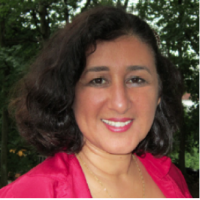United Nations Resolution 2122: Creating New Opportunities and Challenges for S-CAR
United Nations Resolution 2122: Creating New Opportunities and Challenges for S-CAR
 The United Nations Security Council on October 18, 2013 adopted Resolution 2122, aimed at strengthening women’s role in all stages of conflict prevention and resolution. This resolution is rather significant as it looks to increase and reinforce the role that women can play at the negotiation table. It is also very unique as all the 15 members of the Security Council agreed to focus on women’s leadership in conflict resolution and peacebuilding.
The United Nations Security Council on October 18, 2013 adopted Resolution 2122, aimed at strengthening women’s role in all stages of conflict prevention and resolution. This resolution is rather significant as it looks to increase and reinforce the role that women can play at the negotiation table. It is also very unique as all the 15 members of the Security Council agreed to focus on women’s leadership in conflict resolution and peacebuilding.
All United Nations-established commissions have been asked to include information on the impact of armed conflict on women and girls. The Council as such recognizes with concern that, without a “significant implementation shift,” women would remain under-represented in conflict prevention and resolution, protection and peacebuilding for the foreseeable future.” The United Nations Secretary-General Ban Ki-moon has also urged the Council to deal with the full range of violations of women’s rights during conflict, saying that peacekeeping mandates should support national prosecution for serious international crimes against women.”
Some important highlights of UN-Resolution 2122 are that it “recognizes the need for timely information and analysis on the impact of armed conflict on women and girls, the role of women in peacebuilding and the gender dimensions of peace processes and conflict resolution…” as stated in Article 2. Article 7 “recognizes the continuing need to increase women’s participation and the consideration of gender-related issues in all discussions pertinent to the prevention and resolution of armed conflict, the maintenance of peace and security, and post-conflict peacebuilding" and in this regard, the Council continues to encourage states to “develop dedicated funding mechanisms to support the work and enhance capacities of organizations that support women’s leadership development and full participation in all levels of decision-making.” Article 8 “stresses the importance of those Member States conducting post-conflict electoral processes and constitutional reform continuing their efforts, with support from United Nations entities, to ensure women’s full and equal participation in all phases of electoral processes, noting that specific attention must be paid to women’s safety prior to, and during, elections.”
 This vital need, expressed by the UN-2122 Resolution, is exactly what S-CAR can contribute to the world. A response to this resolution is in accord with the central question we read in George Mason University’s Strategic Plan 2014-2024. It reads: “How can George Mason University become not necessarily the best university in the world, but the best university for the world?” We read also in the Strategic Plan that “George Mason University is an innovative and inclusive academic community committed to create a more just, free and prosperous world. One of the seven values stated in the Strategic Plan is: “Diversity is our strength; we include and embrace a multitude of people and ideas in everything we do and respect differences.” The Mason Idea in the Strategic Plan states “We educate students to create, as well as to carry out jobs; become agents of positive changes…”. This commitment for innovation, diversity and educating “agents of positive change” is a strength of George Mason University.
This vital need, expressed by the UN-2122 Resolution, is exactly what S-CAR can contribute to the world. A response to this resolution is in accord with the central question we read in George Mason University’s Strategic Plan 2014-2024. It reads: “How can George Mason University become not necessarily the best university in the world, but the best university for the world?” We read also in the Strategic Plan that “George Mason University is an innovative and inclusive academic community committed to create a more just, free and prosperous world. One of the seven values stated in the Strategic Plan is: “Diversity is our strength; we include and embrace a multitude of people and ideas in everything we do and respect differences.” The Mason Idea in the Strategic Plan states “We educate students to create, as well as to carry out jobs; become agents of positive changes…”. This commitment for innovation, diversity and educating “agents of positive change” is a strength of George Mason University.
UN Resolution 2122 as such presents S-CAR with new but not insurmountable challenges. This is an opportunity to show how S-CAR can be best for the world and how S-CAR can support skills for women’s leadership in conflict resolution. S-CARs focus should not only be on producing knowledge about gender and conflict but also developing capacity for educating current and future leaders that will focus on gender based negotiation skills. The impact of this initiative will be one where the education of both women and men at the national and international level, will lead to an increase in current as well as future negotiators well versed on gender subjects in conflict resolution. Women especially in the Middle East have very limited access to decision making institutions. There are thousands of women in this region who seek to achieve political influence to build peace and security. One of the approaches to strengthen women in this region in conflict resolution is exactly educating them in leadership and negations skills.
The question now is what will S-CAR do with UN Resolution 2122 and how will it impact the world?




